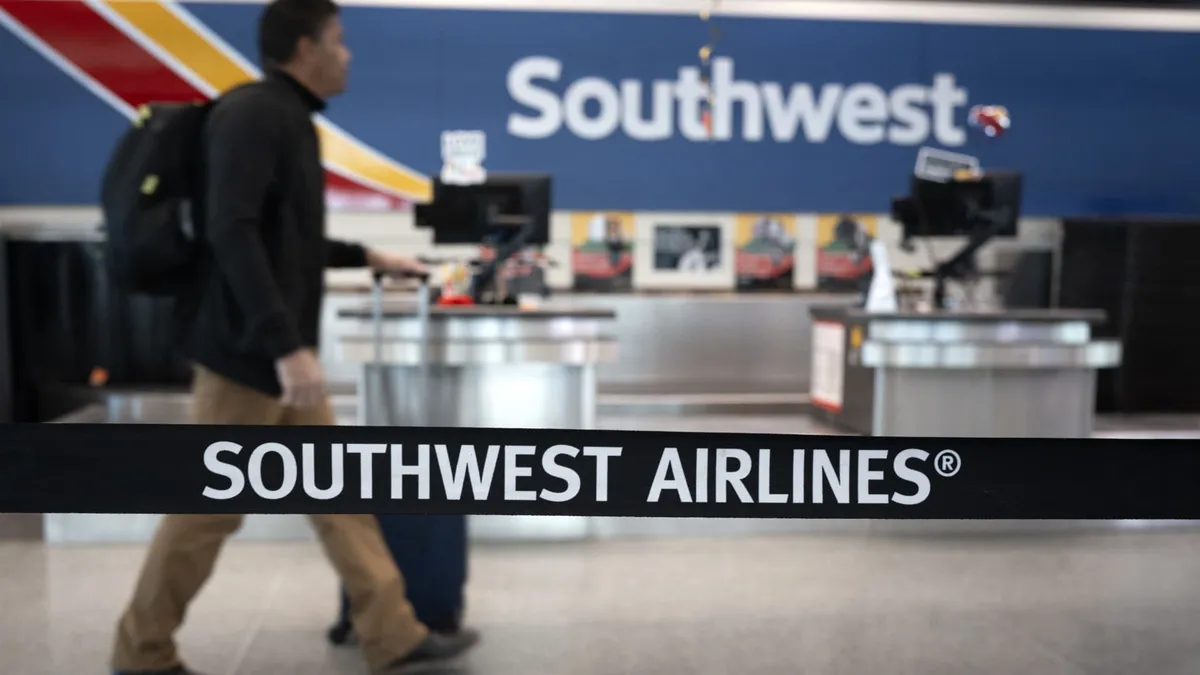
For over 50 years, Southwest Airlines has been a staple in the travel industry, renowned for its customer-friendly policies, including the ability for passengers to check bags for free. However, in a surprising shift, the Dallas-based airline has announced that it will be ending this long-standing policy in May. This decision has left many customers feeling discontented, with some even contemplating switching to other airlines.
One such customer is MaKensey Kaye Alford, a 21-year-old singer and actress from Birmingham, Alabama. Alford expressed her dismay, stating, "It was the only reason I flew Southwest." As she prepares to move to New York City later this year, she admits she might consider other airlines due to this policy change.
Southwest Airlines has managed to maintain its loyal customer base through various economic challenges, including recessions and the Covid-19 pandemic. This loyalty has been cultivated through a commitment to customer satisfaction, which has been reflected in their consistent profitability. Notably, Southwest has never posted an annual loss, making it the largest airline carrier in the United States. However, as competition intensifies with major airlines like Delta and United Airlines pulling ahead, Southwest is feeling the pressure and is now making significant changes to its business model.
The decision to charge for checked bags marks a significant departure from Southwest's traditional policies. Customers like Errol Joseph, a 36-year-old sales consultant who splits his time between New York and Dallas, have voiced similar sentiments, indicating they may choose airlines with enhanced amenities, such as Delta's seatback screens, if prices are comparable. Joseph noted, "With the baggage policy change, there's pretty much no reason to be loyal." This sentiment reflects a growing trend where airlines are scaling back on complimentary services.
Southwest's decision aligns with a broader trend in the airline industry where complimentary perks are being reduced. Following the pandemic, businesses across various sectors, including airlines, have been reevaluating their offerings. Airlines are increasingly reserving perks for loyalty program members or customers who purchase higher-tier tickets. For instance, Delta Airlines now provides free Wi-Fi only to members of its SkyMiles loyalty program, while United Airlines plans to offer free access to Elon Musk's Starlink satellite Wi-Fi exclusively for MileagePlus members.
As costs rise, it's becoming increasingly challenging for airlines to maintain free services. Notably, airlines generated over $7 billion in baggage fees in 2023 alone. Southwest executives have acknowledged the financial necessity behind these changes, with CEO Bob Jordan stating that the airline's analysis of customer booking behavior has shifted, leading to the decision to implement baggage fees.
Southwest's recent policy changes also stem from pressure from investors. Elliott Investment Management, a significant shareholder, has been advocating for increased profitability and faster changes within the company. Following the announcement of the new baggage policy, Southwest's shares experienced a notable increase of nearly 9%, contrasting with declines observed among competitors like Delta and United.
Analysts suggest that these shifts toward profitability may reshape Southwest Airlines into a more investor-friendly company. Dan McKenzie, an airline analyst at Seaport Research Partners, raised his price target on Southwest's shares, attributing the increase to the recent policy changes despite a challenging market environment.
As Southwest Airlines prepares to transition away from its two-checked-bags-fly-free policy, it is also making operational adjustments. The airline will continue to offer one free checked bag to customers with co-branded Southwest credit cards and loyalty program members. However, the overall accessibility of this perk is diminishing, leading to speculation about how it will affect customer behavior.
Travel industry experts are closely monitoring the impact of this policy change on operational efficiency. Harvard Business School professor Frances Frei expressed concerns about the potential for increased carry-on luggage leading to slower boarding times. Southwest is proactively addressing these issues by preparing employees for the expected rise in carry-on baggage and implementing new procedures to manage these changes effectively.
The upcoming implementation of baggage fees represents a pivotal moment for Southwest Airlines, a company known for its customer-centric approach. As they navigate these changes, it remains to be seen whether customers will remain loyal or seek alternatives. Despite the challenges ahead, Southwest is confident in its preparations and plans to adapt to the evolving airline landscape. Time will reveal whether this strategy will pay off, but for now, the airline is ready to face the new reality.